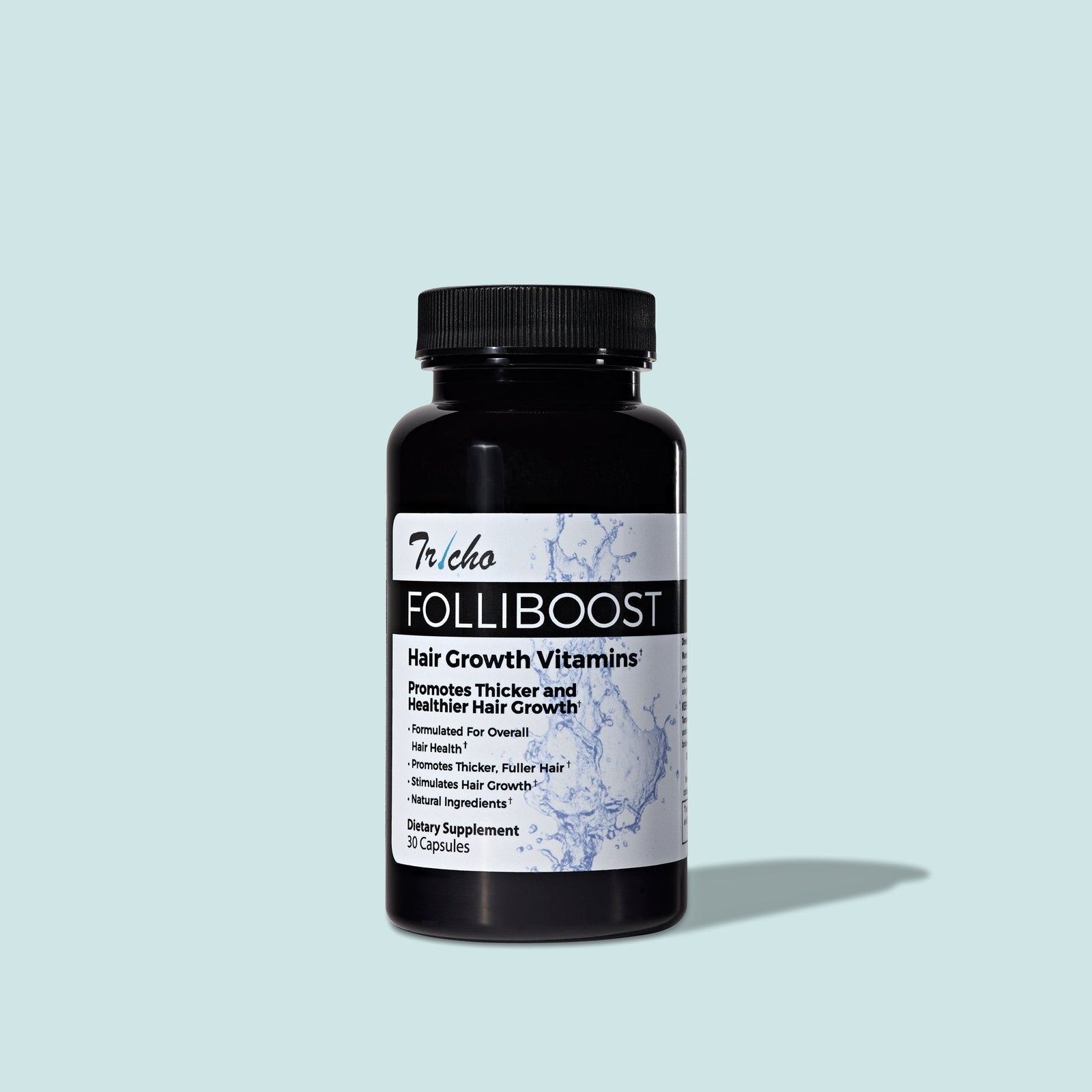Your Cart is Empty
Thicker, Fuller Hair Without the Side Effects.
Thicker, Fuller Hair Without the Side Effects.
Thicker, Fuller Hair Without the Side Effects.
March 19, 2025 4 min read
For many women, hair forms a vital part of identity, beauty, and self-esteem. Not surprisingly, unexplained or sudden hair loss can cause significant stress and worry. Though factors like genetics, hormonal imbalance, and ageing are commonly known as hair loss triggers, vitamin deficiency is an often-overlooked aspect that significantly contributes to hair thinning and breakage.
Hair loss female vitamin deficiency concerns are real and more prevalent than most realise. Vitamins play a vital role in ensuring hair health, growth, and fullness. When the body lacks essential nutrients, hair follicles struggle to produce healthy, strong hair strands—resulting in increased shedding, thinning, and slower regrowth cycles.
Several vitamins specifically relate to hair health. Deficiencies in these can directly or indirectly lead women to experience hair thinning or loss. Here are essential vitamins and nutrients to monitor:
Vitamin D deficiency is among the most common reasons for hair loss in women. The "sunshine vitamin" has a crucial role in hair follicle cycling. It supports the creation and growth of new hair follicles. Limited exposure to sunlight, dietary choices or underlying health conditions, such as autoimmune disorders, can lead to shortages of vitamin D. This deficiency may manifest as thinning hair, bald patches or slowed growth. Women experiencing persistent hair loss should carefully monitor their vitamin D levels as a potential underlying factor.
Biotin (Vitamin B7) deficiency is widely recognised as capable of contributing to hair thinning or loss. Alongside other B vitamins—particularly B12 and folate (B9)—biotin influences keratin production, promoting strength and thickness in hair strands. Women following restrictive diets, undergoing weight loss surgery, or consuming medications inhibiting biotin absorption become more susceptible to low levels of B vitamins and subsequent hair loss concerns.
Finding the correct balance for Vitamin A is important. Insufficient Vitamin A can negatively impact hair growth, whereas an excess can also lead to hair thinning. Vitamin A encourages sebum production, essential for conditioning the scalp and keeping hair follicles healthy. Dietary deficiencies, particularly among women who abstain from key nutritional groups or undergo drastically restrictive diets, might unknowingly risk their Vitamin A reserves.
Vitamin E greatly supports hair and scalp health due to its antioxidant properties. It improves scalp circulation, ensuring follicles receive necessary nutrients for robust growth cycles. Women lacking sufficient vitamin E intake may experience premature thinning or hair damage as their scalp environment becomes less efficient at supporting strong, resilient hair follicles.
Not vitamins per se, iron and Vitamin C deficiencies can equally lead to female hair loss. Iron-deficient anaemia frequently causes hair shedding, as hair growth cycles slow due to reduced oxygen supply to follicles. Vitamin C enhances iron absorption from the diet, reinforcing hair follicle health. Women losing hair should evaluate their dietary iron intake and whether Vitamin C supplementation could help their bodies better absorb available iron.
Identifying if vitamin deficiency is contributing to your hair loss means paying careful attention to certain physical indicators. Typical signs include increased shedding noticeable on brushes, shower drains, pillows, or clothing. Women might notice overall thinning, reduced hair density, slower hair growth rates, fragile hair strands prone to breakage, or even progressive development of bald patches. These symptoms necessitate prompt medical attention to identify underlying vitamin deficiencies effectively.
Your doctor can help you identify vitamin deficiency causing hair loss through blood tests and assessing medical and dietary history. Examining your lifestyle, dietary habits, and any related health conditions helps pinpoint specific vitamin deficiencies. Once identified, appropriate supplementation, dietary adjustments or lifestyle changes may prove helpful, reversing hair thinning or at least halting progression.
Applying nutritional strategies and medical interventions targeting specific deficiencies helps to restore healthy hair growth. Even without a deficiency diagnosis, many women find improved hair health through dietary supplements, particularly formulated hair products and vitamins.
A proactive and holistic approach to positively affect hair health involves balanced nutrition focusing on vitamins that support healthy hair follicles. Include plenty of leafy green vegetables, fruits, fortified cereals, lean proteins, healthy fats, and whole grains to naturally obtain essential nutrients.
Ensuring adequate sunlight exposure improves Vitamin D levels. If sunshine is limited, consider dietary supplements after consulting a healthcare professional. Vitamin-rich supplements should complement a balanced diet, particularly if accessibility or individual dietary choices limit nutritional options.
If you're experiencing hair loss in women linked to nutritional shortages or simply want a scientifically formulated product to boost hair growth and thickness, consider Folliboost Vitamins. This product combines natural ingredients, essential nutrients, and proven vitamins to rejuvenate and nourish hair follicles, effectively combating thinning hair and strengthening your strands for visibly improved hair health and vitality.
Vitamin deficiencies, often overlooked yet significantly impactful, play a substantial role in hair loss among women. Addressing this issue starts with awareness, vigilance, and proactive measures—beginning with recognising symptoms, monitoring potential deficiency factors, implementing balanced nutritional habits, and consulting medical guidance when symptoms persist.
Remember that beauty, well-being, and self-confidence all begin from within. Ensuring healthy levels of vitamins and nutrients in your diet safeguards your body's health and your hair's strength and beauty. Investing in your overall nutritional health can significantly help prevent or reverse hair loss associated with vitamin deficiency, enabling you to feel confident and vibrant once again.
